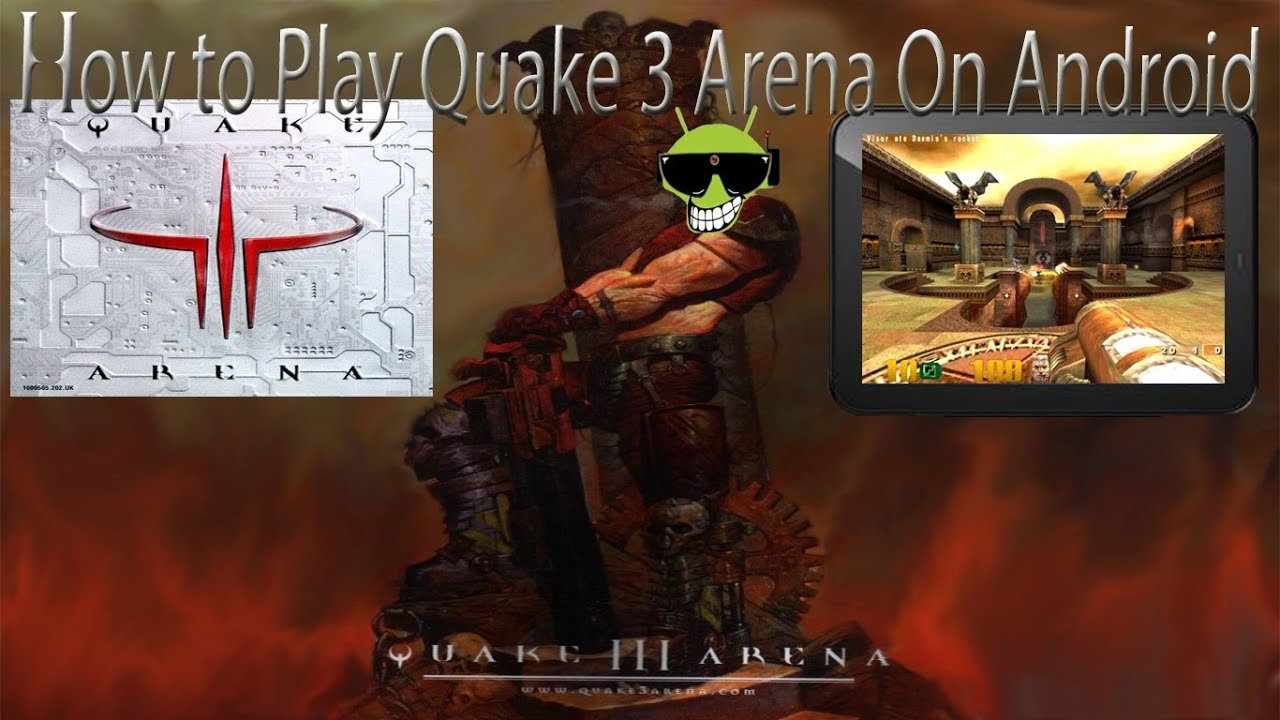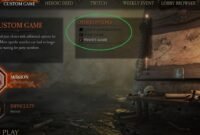
How to Play Quake: A Guide to Mastering the Arena
Related Articles
- How To Play The Game Monster Hunter: World: A Comprehensive Guide For Beginners
- How To Play The Game NBA 2K22: A Comprehensive Guide To Dominating The Court
- How To Play The Sims 4: A Comprehensive Guide For Beginners And Beyond
- How To Play The Game Zoo Tycoon: A Comprehensive Guide For Animal Lovers And Management Enthusiasts
- How To Play Mass Effect: Andromeda – A Comprehensive Guide For New Explorers
Introduction
Join us as we explore How to Play Quake: A Guide to Mastering the Arena, packed with exciting updates
How to Play Quake: A Guide to Mastering the Arena

The year is 1996. The internet is still in its infancy, dial-up connections are the norm, and a game called Quake is about to revolutionize the world of first-person shooters. Fast forward to today, and Quake is still a titan of the gaming world, boasting a dedicated community and numerous sequels and spin-offs. Whether you’re a seasoned veteran of the arena or a newcomer looking to experience the adrenaline-pumping action, this comprehensive guide will equip you with the knowledge to conquer the battlefield.
Quake: A Brief History
Before we dive into the gameplay, let’s take a quick trip down memory lane. Developed by id Software, the creators of Doom, Quake was released in 1996 and quickly became a phenomenon. Its innovative 3D graphics, immersive environments, and fast-paced gameplay set a new standard for FPS games.
Quake introduced the world to the concept of "deathmatch," where players battled against each other in a free-for-all frenzy. This, coupled with its robust modding community, led to the game’s enduring popularity. Over the years, Quake has spawned numerous sequels, including Quake II, Quake III Arena, Quake 4, and Quake Champions, each building upon the foundation laid by the original.
Platforms and Versions
Quake has been ported to a wide range of platforms, including:
- PC: The original platform and still considered the definitive way to experience Quake.
- Mac: Early versions of Quake were available for Mac, but later iterations focused primarily on PC and consoles.
- Linux: Quake has enjoyed strong support on Linux platforms, thanks to its open-source nature.
- PlayStation: Quake II, Quake III Arena, and Quake 4 were all released on PlayStation consoles.
- Xbox: Quake III Arena was also ported to the Xbox.
- Mobile: While not officially available, various mobile ports of Quake have been created by fans and developers.
The specific version you choose will influence your gameplay experience. For example, Quake III Arena is known for its fast-paced, skill-based gameplay, while Quake II offers a more tactical approach with a wider variety of weapons and environments.
Getting Started: Choosing the Right Version
For new players, the best place to start is with Quake III Arena. It’s a streamlined, competitive experience that focuses on pure, adrenaline-fueled action. The game is available on various platforms, including PC, PlayStation, and Xbox.
For those who prefer a more immersive and story-driven experience, Quake II is a great choice. It offers a single-player campaign that expands upon the lore of the Quake universe, along with a robust multiplayer mode.
If you’re looking for the ultimate Quake experience, the original Quake is still available on various platforms and offers a unique blend of classic FPS mechanics and atmospheric environments.
Core Gameplay Mechanics
No matter which version you choose, the core gameplay mechanics of Quake remain largely consistent:
- Fast-Paced Action: Quake is known for its breakneck speed. Players must react quickly, anticipate enemy movements, and master the art of strafing and dodging.
- Weapon Variety: Each Quake game features a unique arsenal of weapons, from the classic rocket launcher and shotgun to more exotic options like the railgun and the lightning gun.
- Power-Ups: Scattered throughout the arena are power-ups that grant players temporary advantages, such as increased health, armor, or special abilities.
- Map Design: Quake maps are designed to encourage fast-paced combat and strategic maneuvering. They feature open areas for long-range engagements, tight corridors for close-quarters battles, and hidden areas for flanking maneuvers.
Essential Tips for Beginners
- Master the Basics: Start by practicing your movement, aiming, and weapon handling. Quake’s fast pace requires precision and quick reflexes.
- Learn the Maps: Familiarize yourself with the layout of each map. This will help you anticipate enemy movements, find power-ups, and plan your strategies.
- Experiment with Weapons: Each weapon has its strengths and weaknesses. Try different weapons in different situations to discover which ones work best for you.
- Use Power-Ups Wisely: Power-ups can turn the tide of battle, but they are often short-lived. Use them strategically to gain an edge over your opponents.
- Practice, Practice, Practice: The key to mastering Quake is constant practice. Play against bots, join public servers, and learn from your mistakes.
Advanced Techniques
As you gain experience, you can start incorporating advanced techniques into your gameplay:
- Strafe Jumping: This technique allows you to move faster than normal by jumping and strafing simultaneously.
- Rocket Jumping: By using rockets to propel yourself into the air, you can reach higher platforms and gain a strategic advantage.
- Bunny Hopping: This technique involves repeatedly jumping and crouching to gain speed and maneuverability.
- Railgun Aiming: The railgun is a powerful weapon that requires precise aiming. Practice hitting moving targets and learn to anticipate their movements.
Finding Your Community
One of the best things about Quake is its vibrant community. Here are some ways to connect with other players:
- Join Online Servers: Numerous public servers are available for all versions of Quake. This is a great way to meet new players and test your skills.
- Find Discord Servers: Many dedicated Discord servers exist for Quake fans, offering discussions, tournaments, and more.
- Attend Events: Quake tournaments and conventions are held regularly around the world. These events provide a chance to compete against top players and meet fellow enthusiasts.
Quake’s Enduring Legacy
Quake’s influence on the gaming industry is undeniable. Its fast-paced gameplay, innovative features, and dedicated community have inspired countless other games. Today, Quake remains a popular choice for competitive gaming, with tournaments and leagues held regularly.
Whether you’re a newcomer looking to experience the thrill of arena combat or a seasoned veteran seeking a nostalgic trip down memory lane, Quake offers something for everyone. With its enduring legacy and passionate community, Quake is a game that continues to captivate and challenge players of all skill levels.
FAQ
Q: What is the best way to learn Quake?
A: The best way to learn Quake is to practice regularly. Start by playing against bots to get a feel for the game’s mechanics. Then, join public servers and gradually increase the difficulty of your opponents.
Q: What are the best Quake resources for beginners?
A: There are numerous resources available for beginners, including online tutorials, guides, and forums. You can also find helpful tips and strategies on websites like QuakeWorld.
Q: How do I find other Quake players?
A: You can find other Quake players on online servers, Discord servers, and at gaming events.
Q: What are some of the best Quake maps?
A: Some of the most popular Quake maps include dm1, dm2, dm3, and q3dm6. These maps are known for their balanced design and fast-paced action.
Q: Is Quake still relevant today?
A: Absolutely! Quake is still a popular choice for competitive gaming, with tournaments and leagues held regularly. It’s also a great game for casual players who enjoy fast-paced action.
Q: What are the best Quake mods?
A: There are countless Quake mods available, ranging from simple weapon tweaks to complete gameplay overhauls. Some popular mods include QuakeWorld, QuakeSpasm, and QuakeForge.
Q: What is the future of Quake?
A: The future of Quake is bright. With the release of Quake Champions and the continued support of the community, the game is likely to continue to thrive for years to come.
This article was inspired by information found on: [Source URL]
Closure
We hope this article has helped you understand everything about How to Play Quake: A Guide to Mastering the Arena. Stay tuned for more updates!
Make sure to follow us for more exciting news and reviews.
Feel free to share your experience with How to Play Quake: A Guide to Mastering the Arena in the comment section.
Stay informed with our next updates on How to Play Quake: A Guide to Mastering the Arena and other exciting topics.





